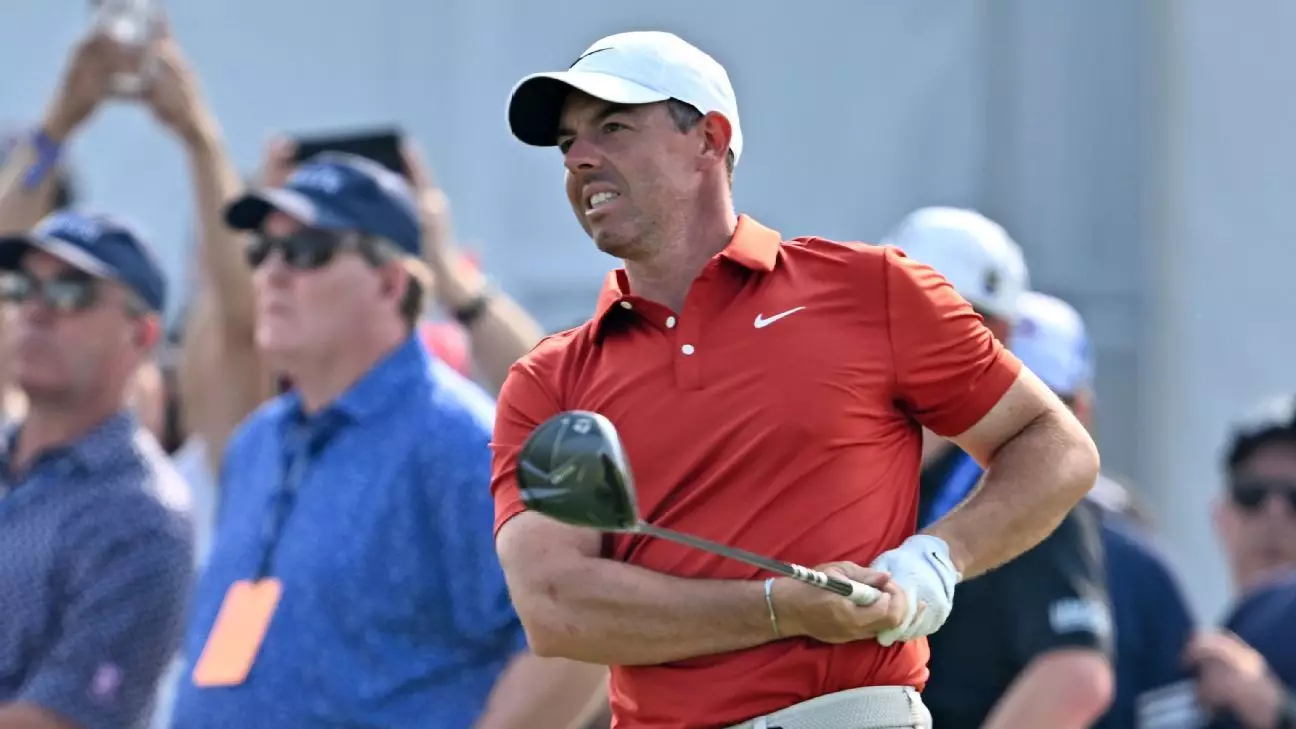The world of professional golf can be as unforgiving as it is magnetic, and nothing illustrates this more dramatically than Rory McIlroy’s recent performance at the RBC Canadian Open. Just a few days ago, the Masters champion entered the tournament with high hopes, only to walk away on Friday after posting an astonishing 8-over 78. This wasn’t just a bad day at the office; it was McIlroy’s second-highest score to par in his entire PGA Tour career, punctuating the uncertain moment he currently faces in a sport where consistency is king.
McIlroy’s round was littered with errors, culminating in a disastrous quadruple-bogey on the fifth hole. This single hole alone could have sent many athletes into a spiral of despair, but for McIlroy, it served as a stark reminder of how quickly fortunes can turn in sport—a sharp contrast to the glamor and consistency he had displayed leading up to the event. While he had hoped that his new driver would correct some of the inconsistency plaguing his game, it became painfully clear during this round that he was still in the throes of searching for that elusive “missing piece” off the tee.
Missed Opportunities and Upcoming Challenges
Walking away from the course, McIlroy wasn’t just grappling with the embarrassment of a poor performance; he was staggering under the weight of missed opportunities. He finished 21 strokes behind leader Cameron Champ and, perhaps more notably, missed the cut by a staggering 12 shots. This marked the first time since the 2023 Players Championship that McIlroy wouldn’t play on a weekend in a non-major event—a disheartening detail that underscores the precarious nature of competitiveness in professional sports.
As he gears up to compete at Oakmont next week, the stakes will be even higher. The pressure will mount as the need to hit fairways becomes paramount in a tournament that is designed to challenge even the most seasoned pros. This upcoming event will offer a unique backdrop; one that demands precision, focus, and mental fortitude—a triad of qualities that McIlroy will need to rediscover sooner rather than later.
The Rise of Cameron Champ
While McIlroy falters, Cameron Champ stands as a beacon of what it means to seize opportunity when it arises. Following a stellar opening round of 62, Champ finished the day with a solid 68, making him the clear front-runner heading into the weekend. This was a moment of serendipity for Champ, who got into the tournament as one of the last alternates. His resilience in such a scenario is a testament to the unpredictable nature of golf, as well as a nod to his sheer talent.
With a bogey-free 36 holes, Champ’s performance is a critical reminder that success often comes from those who dazzle under pressure rather than crumble beneath it. Golf is a game of inches, but it’s also a game of psychology. While McIlroy battles his own demons on the course, Champ ascends, displaying both command and poise, traits that could very well define the weekend.
The Broader Implications
In a broader context, McIlroy’s struggles serve as an important lesson about the pressures athletes face in high-stakes environments. With every fleeting moment of doubt that creeps in, the shadow of uncertainty can loom large. An athlete’s mental state can drastically influence performance, especially in a game that requires such fine motor skills and extreme focus, as golf invariably does. McIlroy’s vulnerability, laid bare for audiences to witness, becomes a double-edged sword: it humanizes him, but it also makes one question whether he can remain relevant in a sport that values success over struggle.
As golf approaches the U.S. Open, all eyes will be on both McIlroy and Champ. Each represents two sides of the same coin; the once seemingly indomitable champion grappling with self-doubt, and the underdog rising to prominence. The complexities of their narratives will be riveting to follow, as they clash on the green, forcing spectators to confront the brutal reality of a sport that is as fickle as it is revered.

Leave a Reply